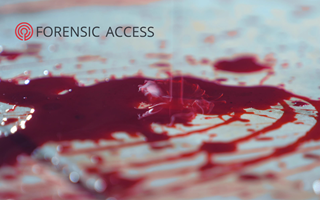News May 14, 2020 5m
For the forensic science industry, The Forensic Science Regulator’s annual report provides a summary of quality within the field of Forensic Science between 17th November 2018 and 16th November 2019. For the legal professional who instructs forensic expert witnesses it is an important document that can highlight areas to be aware of; and in the worst case, areas to challenge in prosecution forensic reports. The latest version was published in February 2020.
The overall message of the report was that the level of compliance with quality standards has increased. This was especially the case in fingerprints and digital forensics disciplines. Although there is still a gap between the quality standards set and the level of compliance.
This is due to the cyber-attack on Eurofins Forensic Services. Solicitors may struggle to get toxicology and other client samples tested by an accredited laboratory. If this is the case, either the sample is not tested and the client does not get the right to a fair trial, or it is processed by an unaccredited lab. This runs the risk of the judge not accepting the results due to lack of accreditation. Forensic Access has been able to maintain this service for our clients throughout this time. This is due to our strong relationship with many of the testing facilities.
This will not come as a surprise to anyone working in the criminal justice system (CJS). Backlogs for examination result in the case heading to trial without the digital evidence in the case. If the items have been processed, the information does not always make its way to the defence. This may mean trials being delayed and a lot of extra work for all concerned. Our digital experts can undertake this work on your client’s behalf ensuring you get the information you need in advance of trial.
This means fire and rescue services cannot move forward with attaining the required standards. Fire investigation work has historically been done by private forensic science providers. In the main it is now carried out by the relevant fire service. This means there is large variance in methods and reporting outcomes. The Forensic science regulator is keen to standardise these processes to allow accreditation to occur. However, in the absence of direction from the government, it is unclear who investigates such crime scenes. Does it fall to the local fire service or the private forensic science providers? This means for now, most of this work is un-regulated and unaccredited, leading to potential miscarriages of justice.
The forensic science regulator is keen for all defence experts to hold accreditation. She feels it will ensure quality forensic science is undertaken at every juncture. This will also create an even playing field for both prosecution and defence teams before and during trial. Currently, gaining accreditation is untenable for many smaller companies or sole traders due to the significant cost incurred. The regulator hopes to resolve this by introducing a tiered charging system to legal aid. This will allow accredited experts to charge more and cover significant accreditation costs. Defence solicitors can then be confident that their expert meets the quality standards for forensic science in the UK whilst having a body (UKAS) to raise concerns with if the report is not of the required standard.
Weaknesses and limitations have been highlighted in the validation of methods in forensic collision investigation, mobile phone data downloads and crime scene investigation. These must be controlled if the organisation is to achieve ISO 17025 accreditation. Holding accreditation is a requirement of the regulator and of outsourcing police forces. It also helps to limit mistakes and misinterpretations. To achieve accreditation companies and experts must demonstrate sufficient training and ongoing competency. They must show that staff are adhering to procedures and that these procedures limit the likelihood of errors occurring in sensitive casework. Organisations that do not put these measures in place run the risk of operators and experts ‘going rogue’, as happened at Randox toxicology. Thousands of samples had to be retested and many convictions were overturned. Randox held UKAS accreditation at the time of the incident. The issue was discovered as part of an internal audit; an annual UKAS requirement to maintain accredited status.
The regulator feels that if all experts had to hold accreditation it would drive up quality in forensic science. This will reduce the number of cases that are retried or appealed due to issues with the original testing and interpretation.
The report goes on to discuss a similar issue in another discipline; Firearms. Many in-house police laboratories do not hold the required ISO 17025 accreditation. This is of grave concern to our firearms experts. Despite the CPS guidance, unaccredited organisations continue to classify weapons for evidential purposes. It is not always clear from the report that the person providing it is not an accredited expert. Our Forensic Access webinars share ways in which a solicitor can check this and confidently challenge the evidence. On being challenged the exhibits are sent to an accredited lab for examination. When this occurs it’s often the case that a different classification from the original is reported.
There are still issues surrounding the Contamination Elimination Database (CED). Every DNA profile generated from a crime scene stain is run against this database. Its aim is to ensure that samples have not been contaminated by a member of police staff during collection. A number of police officer profiles have been migrated from the Police Elimination Database (PED). However, there are still reports of some CSI’s refusing to provide samples. This issue can increase the risk of untraceable contamination in a case. From a solicitor’s point of view there is no workable solution here. Short of asking the CSI involved in the case to confirm that they have provided a profile. Meaning you can never be 100% certain that contamination by a police staff member has not occurred.
Dr Tully is due to finish her six year term in November 2020. She will continue to work on resolving the issues highlighted in her report until then. It is not yet known who will succeed her. But without statutory powers, Dr Tully's successor will likely encounter the same challenges that she has.
To discuss any of the issues that this article raises which could be pertinent to your case and how Forensic Access can help you solve them: get in touch with our casework team.
To find out more about our services offered by Forensic Access fill-in our online contact form or Tel: 01235 774870 to speak with our team.


